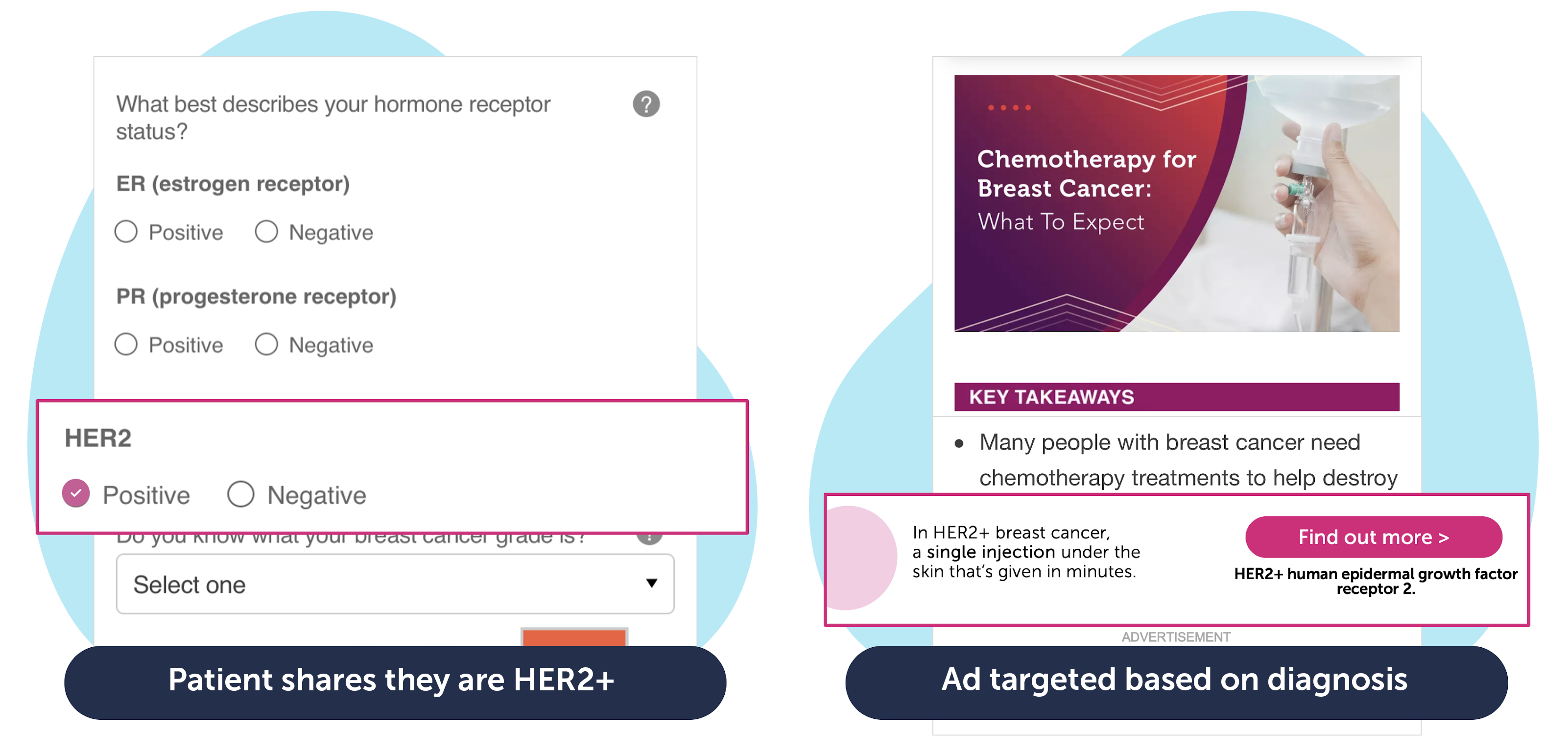MyHealthTeam Launches Patient Diagnosis Targeting for Pharma Marketers: Using Zero Party Data To Deliver Better Patient Experiences and Results
MyHealthTeam Launches Patient Diagnosis Targeting for Pharma Marketers: Using Zero Party Data To Deliver Better Patient Experiences and Results
By Eric Peacock, CEO and Co-founder, MyHealthTeam
At a time when Facebook is restricting the use of a person’s health information to target advertisements, MyHealthTeam is almost insisting on it for our pharma partners. Why? It’s not only better for advertisers, but it is expected by people using a health-first social network for patients.
Facebook is not a health-first social network, and it does not explicitly ask its members to share zero party data about their health. Our social networks are specifically designed for people diagnosed with breast cancer, multiple sclerosis, leukemia, IBD, and 46 other conditions. There, patients share their health data in order to receive relevant health information tailored to their needs. MyHealthTeam members join and share zero party data about their diagnosis, subdiagnosis, age, and symptoms — and they expect to receive relevant and targeted information in return.
MyHealthTeam launched Patient Diagnosis Targeting this year, and the results prove the point. This new solution provides ad placements that are narrowly targeted and therefore improve performance for the advertiser and consumers. Here’s an example of how it works:
A woman recently diagnosed with breast cancer joins MyBCTeam, one of 50 condition-specific social networks from MyHealthTeam. She shares that she has HER2-positive breast cancer. She is among the 20 percent of breast cancer patients for whom targeted therapy is relevant. A brand indicated for HER2-positive breast cancer is able to target its ads to her and other patients with that subdiagnosis. Privacy is critical here. No patient data is shared with the pharma partner because all the targeting is done by and through MyHealthTeam, and our members receive relevant ads throughout their experience with us as a result. The woman with breast cancer does not have to see ads for treatments that would be irrelevant to her, and marketers don’t have to waste money advertising to a patient who will never have an opportunity to go on their drug.

Targeting in this way leads to superior campaign performance. The findings from a Patient Diagnosis Targeting campaign on MyParkinsonsTeam, our social network for people facing Parkinson’s disease, showed the audience had a 50 times greater incidence of a Parkinson’s diagnosis compared to the incidence one would see in the general population (a 50x targeting multiple). This was the highest targeting multiple of all the health publishers that ran this ad campaign. In addition, the campaign results showed that people who viewed the ad on MyParkinsonsTeam, where Patient Diagnosis Targeting was used, were significantly more likely to go on to visit a neurologist.
Brands do not need to cast a wide net and pay to reach the wrong people. Our audience members are actively seeking information, solutions, brands, and treatments relevant to their diagnosis or subdiagnosis, and they have a better experience when we use zero party data prudently and on their behalf. If you’re interested in learning how Patient Diagnosis Targeting will work for your brand, please reach out to partnerships.
